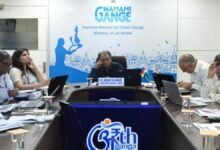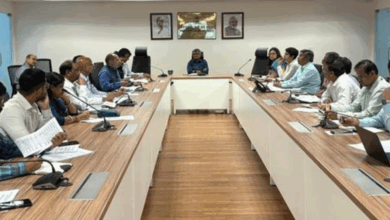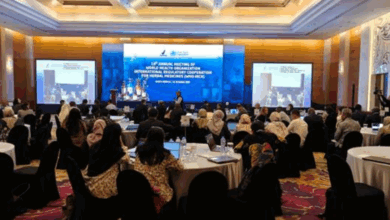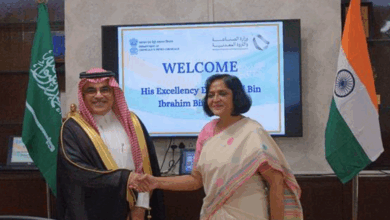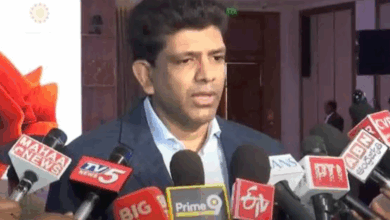20th Central Monitoring Committee Meeting Reviews Progress of 15 States on River Rejuvenation
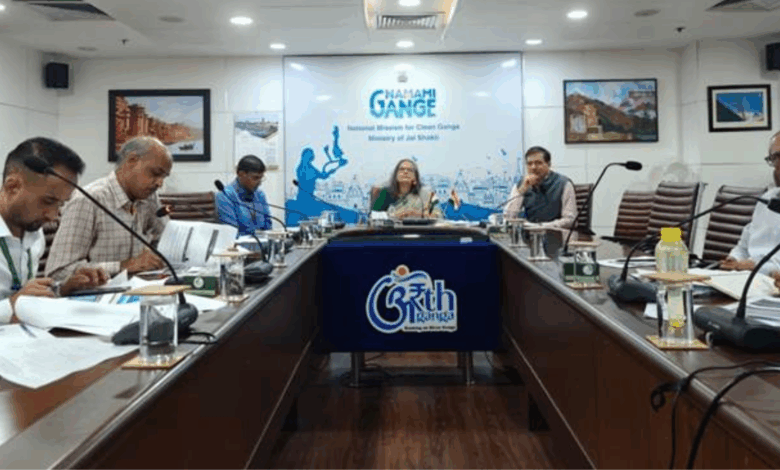
The 20th Meeting (Part-II) of the Central Monitoring Committee (CMC) on river rejuvenation was held yesterday under the chairpersonship of Smt. Debashree Mukherjee, Secretary, DoWR, RD & GR. The meeting was attended by senior officials, including Shri. Rajeev Kumar Mital, Director General of the National Mission for Clean Ganga (NMCG); Shri. Karan Singh, Joint Secretary, NRCD; Executive Director of Namami Gange Mission and representatives of State Governments and Pollution Control Boards. The meeting focused on reviewing the progress of river rejuvenation efforts across 15 states.
The chair underlined that rejuvenation of rivers is not only an ecological priority but also a social and economic necessity. Secretary Smt. Debashree Mukherjee stressed the urgency of advancing the floodplain zone, completing ongoing sewage and solid waste management projects, enforcing compliance of sewage treatment plants (STPs) and common effluent treatment plants (CETPs), and adopting innovative measures for the reuse of treated wastewater. She emphasised that the efforts of all states must be solutions-oriented and aimed at sustainable interventions to improve river water quality and ecosystem health.
The Committee noted encouraging trends with the reduction of polluted river stretches in several states between 2018 and 2022, with Sikkim emerging as a state with no polluted river stretches in the latest CPCB assessment. Progress was also highlighted in states such as Assam and Punjab, which have initiated steps for the demarcation of floodplains and the removal of encroachments, thereby addressing one of the critical challenges of river rejuvenation. In Odisha, the reuse of treated wastewater, groundwater regulation measures, and flood management initiatives, such as the diversion of stormwater from the Chandaka catchment in Bhubaneswar, were appreciated.
Punjab’s efforts in commissioning projects for the utilisation of treated wastewater and its notification of floodplain zones for the river Satluj were also noted as significant achievements. Maharashtra reported measures for large-scale recycling of treated sewage, particularly mandating reuse in infrastructure projects, while Meghalaya and Mizoram showcased progress under Swachh Bharat Mission 2.0 in strengthening solid waste management systems. Sikkim was commended for its comprehensive approach towards waste segregation, composting, and the adoption of zero liquid discharge by industries.
At the same time, the Committee highlighted the need to address persistent gaps in sewage treatment capacity, non-compliant sewage treatment plants, and inadequate progress in certain industrial pollution management projects. The Secretary urged the convening of regular meetings of River Rejuvenation Committees to maintain accountability and consistent progress monitoring. The meeting concluded with a call for collective responsibility by all participating states to work towards achieving the vision of a pollution-free and resilient river ecosystem.
Disclaimer: This is an official press release by Pib.


